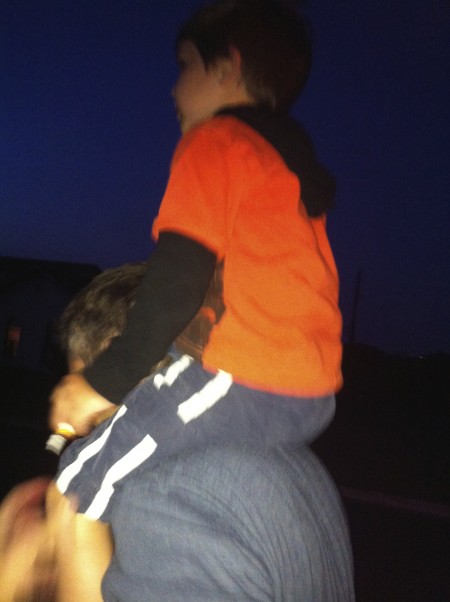On father’s day, we sang a hymn at church entitled “Loving Spirit” written by New Zealand hymn writer Shirley Erena Murray (b.1931), set to one of my favorite tunes, RESTORATION*, from Walker’s Southern Harmony of 1835.
Full disclosure — I picked this hymn (as the music director of our church). I should also add that I’m not a fan of letting secular holidays or observances horn in on the worship of the church. In my view, Worship isn’t about Mother’s Day, Veteran’s Day, etc. But that’s not what this post is about. It just so happens that this hymn uses father imagery (as well as mother, friend, and lover imagery) to explore the nature of the Holy Spirit. But it did seem particularly poignant to me as I stood in the pew with Ann and our two boys on Father’s Day, that this hymn included this line:
“Like a father you protect me, teach me the discerning eye, hoist me up upon your shoulder, let me see the world from high.”
It caught my attention for a number of reasons– the joy and responsibility that comes with being a parent, that parents are called to protect and to teach. But what really moved me was this idea of helping our children (as well as God helping us as God’s children) to see the world in a different way, from a larger, higher-altitude perspective than a child could on his or her own. The image of hoisting up on our shoulders is beautiful. It also made me sad to think of all the times when Max (our now six year old) has asked me to put him on my shoulders and I’ve said, “you’re too heavy” or “it’ll hurt my back” or “we’re too busy for that right now.” I’m going home after work today and putting him on my shoulders just because I can and to think about what such an act means. I’m also thinking about what such an act looks like with our oldest, Carter (now eleven and almost as tall as me!)– perhaps more figuratively than literally! This act is not just about the mechanics of one person sitting on top of another person’s shoulders. It’s about connecting, doing for others, of partnership, of being a servant, of lifting up another, of sharing an experience and view of life.
*Here’s a link to an organ arrangement of the tune by Herbert Colvin, who was my music theory professor during my undergrad.
